NOTTINGHAM’S ONLY INDEPENDENT
VOLUNTEER RUN HIV PEER SUPPORT GROUP
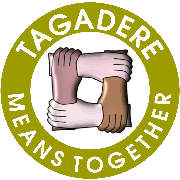
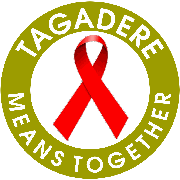
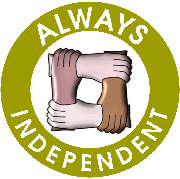
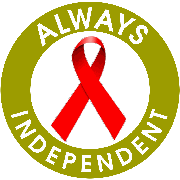
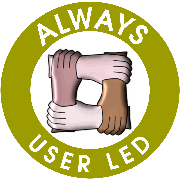
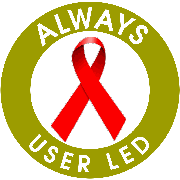
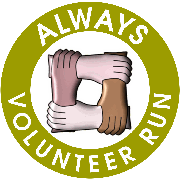
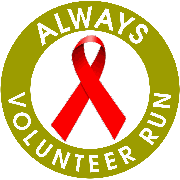
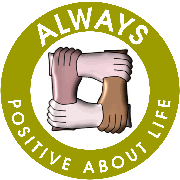
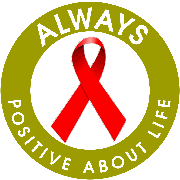
REGISTERED CHARITY 1129416


© Tagadere
Registered Charity 1129416
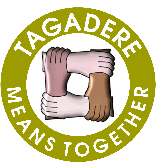


On 1 December 2014 for World AIDS Day, a Tagadere member courageously agreed at short notice to be interviewed live as a local person living with HIV on BBC Radio Nottingham by their presenter Mark Dennision.
This unique interview was originally scheduled to include a complimentary guest, Dr. Immi Ahmed from Nottingham City Hospital but unfortunately he was unable to attend which meant that for the second half of the interview, our member Nicola agreed to stand in and field more questions.
As some questions were rather personal we applaud Nicola for responding to them with calm and unembarrassed aplomb and for allowing an insight into the life of someone living with HIV.
We would like to point out that following the interview we received an astonishing number of phone calls and e-
Mark:
Today is World AIDS Day, the headlines still dominated right now by diseases like Ebola and there is a bit of a fear that the HIV message is being lost or at least being a little diluted. Thirty years ago AIDS was mainstream news with high profile celebrities like Freddie Mercury and Rock Hudson dying from the disease.
In 2014 according to Public Health England, Nottingham has the highest STI rates in the East Midlands and young people are becoming increasingly blasé about the disease.
We’ll come back to that particular subject in just a few moments time, let me firstly introduce you to Nicola; let’s get an insight into what it’s like living with HIV. Nicola is a volunteer at support group Tagadere which is based in Nottingham, hopefully I’ve said that right, Tagadere…
Nicola:
Yes, that’s right, yes.
Mark:
Well firstly why don’t you tell us what Tagadere is and what it does.
Nicola:
Yes, Tagadere is an old English word meaning ‘together’ we chose the word because it basically sums up what we do. We are a user led, volunteer run group that’s local and we bring the diverse communities of people living with HIV in the city and the surrounding area. We come together for basically mutual support on a regular basis and that’s what we do. Together we support each other.
Mark:
How do people find out about the group Do they have to be referred?
Nicola:
Generally you can actually Google HIV support Nottingham and Tagadere will come up, you know, very high up on the search (chuckles) because we chose an unusual name, basically.
Mark:
Right…and what is it that people need? You mentioned there it’s about being together and support, what is it in particular that people need from a group like yours?
Nicola:
I think what many people find and what I found this myself when I was first diagnosed is that, you know, obviously we have fantastic medical teams, there are lots of professional agencies involved in our care and support but there’s nothing quite like talking to other people who have been through the experience of being diagnosed and living with HIV on a long-
Mark:
Is it easier to talk about, do you think, these days than…ten, twenty, thirty years ago?
Nicola:
I would say it really depends who you’re talking to. You know I think there’s still a huge amount of stigma; every week I talk to people who still are not open in front of all of their family circle for example. Not all of my family know for example. I’m looking for a new job at the moment and every time I do an application I’m thinking shall I put this on the form or not…shall I disclose, so every time you’re in a new situation you’re thinking should I be open or not, because what’s the reaction going to be? Because often the reaction is not, not as positive as you would hope.
Mark:
Yes. So what’s your own story, then, when were you diagnosed?
Nicola:
I was diagnosed just in time for Christmas 2002 (laughs)
Mark:
Just in….so just around this time of year was it?
Nicola:
Absolutely, yes, yes, yes.
Mark:
And how did you get HIV?
Nicola:
I…I mean I pretty…I know which partner it was; I mean it would have been that he didn’t know he was positive, therefore, that’s generally how many people..if you’re not tested and you don’t know that you’re HIV positive, then that’s when most of the transmission will occur. So obviously I went through a whole blame thing, but, you know, because I was in a..what I thought was a trusting long-
Mark:
Yes…because I’m thinking back to…I remember those adverts on the TV in the eighties and what-
Nicola:
Absolutely.
Mark:
In some quarters it still is…
Nicola:
Originally it was called ‘GRID’ – Gay Related Immune Deficiency Syndrome, yes, so you know I think the messages were somewhat confused and still are in some ways; it’s very much perceived as a virus that chooses which communities it affects and that’s not true at all, it’s a virus and it will affect anyone who’s put themselves at risk.
Mark:
Yeah..have you been back in touch with your partner of that time, then…and told him?
Nicola:
No, because he lives overseas
Mark:
Right, OK…and you mentioned earlier on that part of the difficulty is who to tell and you mentioned that you haven’t told all the members of your family. The people you have told, what kind of reaction have you had?
Nicola:
Generally supportive, in fact, yeah, in my case. I have to say that’s not the case from everybody who comes to our group. We have to support a lot of people through very difficult situations with their family where in fact they’ve been completely rejected from their family if they have made that disclosure…or for example it’s broken up relationships…yeah, it can devastate families in fact.
Mark:
It’s tragic, really, isn’t it?
Nicola:
It is really, yeah, yeah
Mark:
And what kind of medication then are you on now?
Nicola:
I’m on a very good combination which I’ve been on for probably the past eight years; I just take one single pill a day at ten o’clock in the evening and it’s got three medications in that pill, so the treatments have become a lot more simple, a lot easier to take although they’re still not without their side effects and you have to take them. You know, you have to adhere to the medication regime very strictly.
Mark:
And this is keeping symptoms at bay is it?
Nicola:
What it does…the aim of treatment, the medication stops the virus from replicating in your body, therefore we are what you call ‘undetectable’ -
Mark:
How long will it keep the virus at bay?
Nicola:
As long as….hopefully as long as the combination keeps working. Generally I mean there’s no…it’s hard to know, because we’re obviously…treatments only came in in 1995, was the year that the first combination, the effective combination treatment worked and now they’re developing new medications all the time. Not every combination will suit everybody; some people have to switch, some people switch combinations because the particular side effects don’t agree with them.
Mark:
Been talking about the fact that it’s World AIDS Day today and you heard a little bit from Nicola; we’ll mention this support group here in a few moments time because you might be listening to this thinking ‘yeah, actually, this could be for me, this kind of support’. You’re just telling me, Nicola, every World AIDS Day has a different message every year really, doesn’t it, what is the message this year?
Nicola:
Yeah, it’s An AIDS-
Mark:
Yeah. How…when you were diagnosed, was that through some routine blood test?
Nicola:
Absolutely not, no, I was extremely ill; I’d had a series of what are called…well, infections linked to my immune system collapsing, basically, yeah, so I should have been tested a lot earlier, I wish I had been, it would have probably saved me a couple of stays in hospital (laughs), yeah, because that’s not the ideal. The ideal is always to be tested, tested and diagnosed as early as possible.
Mark:
Right.
Nicola:
Because then that would avoid complications.
Mark:
Aside from the medication that you’re on, you were describing what that medication does, how has it affected your life, this diagnosis?
Nicola:
It’s…I was talking to someone who is newly diagnosed at our group last week actually and we were saying, well, it’s like a journey so I feel that I’ve…you know, I’m still on a journey but I’ve sort of come out on a very positive side if you like. I had a period where I was very messed up with lots of mental health issues…I needed to kind of really…sort of change the way I thought about lots of different things; I changed career path, I needed to get the right support at the right time to be able to sort of get my life back on track…and a lot of people go through that, actually.
Mark:
What about when it comes to relationships, I’d imagine when it’s starting a new relationship, that must be a huge obstacle…
Nicola:
That is huge and I would say that would still be my number one issue actually, that…um…yeah…since my diagnosis I have avoided relationships of that type (pauses) and that’s very sad I suppose but I’ve almost come to accept that that’s how it’s going to be.
It’s not that way for everybody; some people can move forward with that and some people have, you know, successful relationships…you know…women can have children and not pass on the virus because the treatments will prevent that…so we’ve got lots of mums and negative babies in Nottingham and that’s great. Everyone’s different really about how they, you know, need to move forward with their life.
Mark:
Right…on the subject of…of motherhood, is that something that you would like to….happen?
Nicola:
That window is closed now I’d say, it’s…yeah, I think that it…it…
Mark:
Is that a regret, though?
Nicola:
I think that it is a bit of a regret, actually, yeah….hmmm…hmmm…but you know, I’ve got other things in my life so I focus on those.
Mark:
We’ve been talking about the….the early sort of TV commercials to do with Safe Sex and HIV and AIDS, it used to be painted as…well as a death sentence basically wasn’t it..things are different now when it comes to HIV and AIDS…
Nicola:
Mmmm, mmmm (agreeing)….yeah…it’s more about…it’s about living, you know…our support needs to be around living with and not not geared towards helping people to die in a dignified way which it used to be, so that’s why support groups have needed to evolve and change over the last ten years or so…and still evolving.
Mark:
Some people say that the message to do with HIV is getting a little bit lost, diluted…I mentioned earlier on something like Ebola comes along which is a huge global news story..understandably people worry about that but it does mean that other issues are then…shunted out of the way…can you see what people mean by that?
Nicola:
Yes but I mean you know, people…it’s a question of the media…if the media isn’t picking up on…on the fact that, you know, it’s only once a year that the statistics get released again about how many people are dying every year of HIV-
Fortunately in the UK and other developed countries where people have access to treatment we’re down to about sort of 500-
Mark:
I wonder what the answer is, then, is it something like those TV commercials or has the world moved on in lots of other ways now?
Nicola:
Because it’s…you know, the tombstone ad of the 1980s…hmm….maybe it was of its time and at the time…it was misunderstood, there was very little known about the virus, there were no effective treatments and if you were diagnosed then the usual outcome would be death.
Now it’s completely different; there are treatments, it’s about getting people across the world access to those treatments and certainly in the UK it’s a manageable…it’s still not curable…but it’s manageable..but again it’s something that is preventable, so if you can prevent it, that’s the best way forward, certainly for let’s say for a country like Britain…get those messages out in the same way you know, you know..protect yourself and prevent getting it because frankly I would say as a person living with HIV, you really don’t want it (laughs)…yeah, better to prevent it than have it and then have to manage and live with it.
Mark:
Listen, I really appreciate you coming and telling your story, thank you very much indeed and the group is Tagadere and the best way of finding out about that is what? Googling HIV support Nottingham?
Nicola:
HIV support Nottingham, obviously it’s a difficult one to spell!
Mark:
Yes! (laughs)
Nicola:
It’s T-